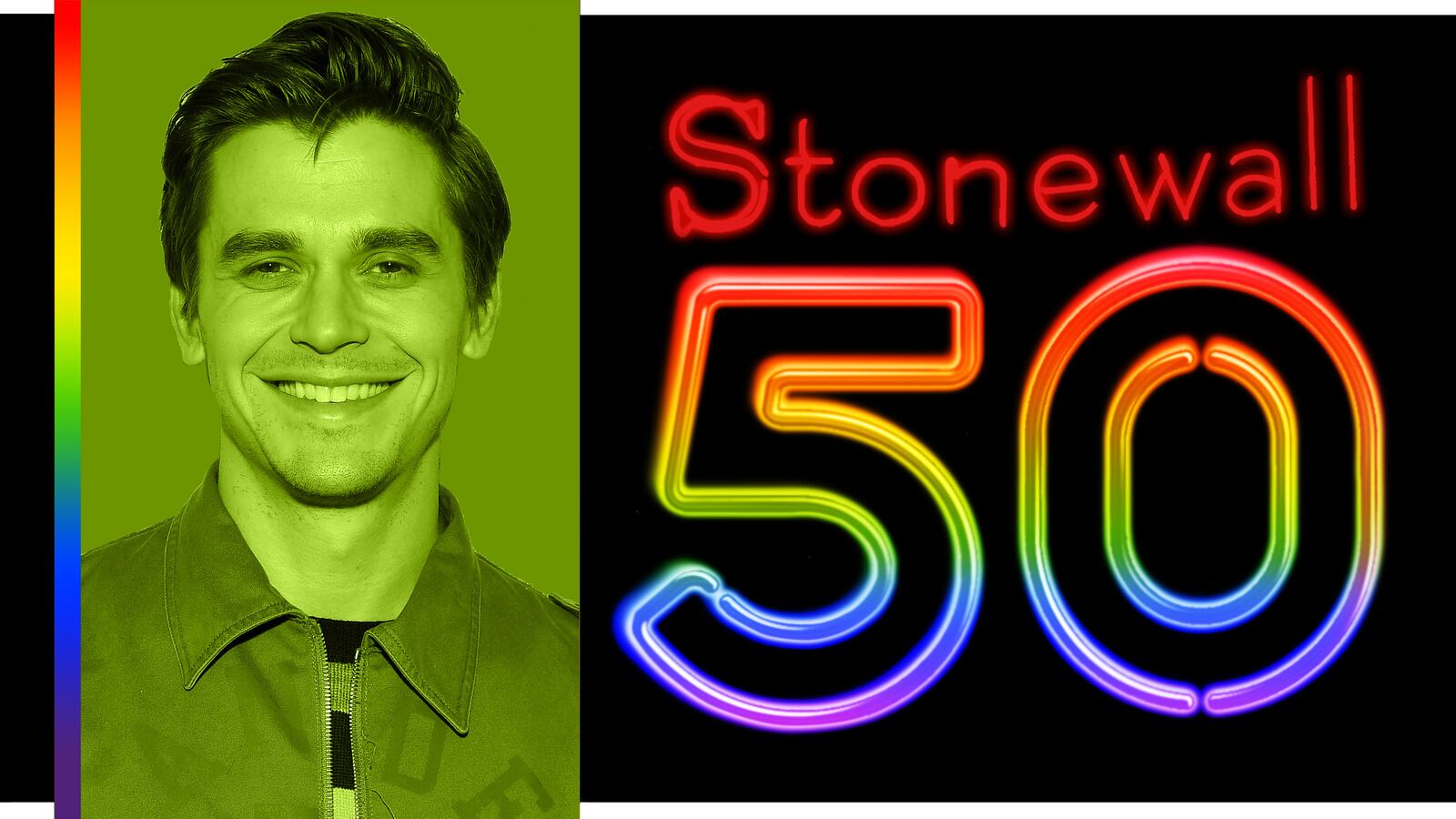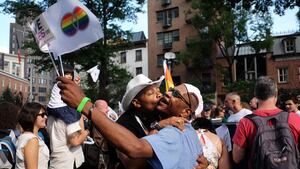In this special series, LGBT celebrities and public figures talk to Tim Teeman about the Stonewall Riots and their legacy—see more here.
Antoni Porowski is a TV personality, actor, chef and model, star of Queer Eye.
When/how did you first hear about the Stonewall Riots, and what did you make of them?
I learned about the Stonewall Riots during my first Pride in New York. I had already been living here for a few years and my friend Klaus was surprised to learn that I had never attended.
He took me to the Stonewall Inn and explained its significance. I quickly felt embarrassed for my perception of Pride and its meaning which, prior to this moment of education, consisted of the idea that Pride was simply a loud party, with no basis in a historical event. I’m so grateful that he invited me that day.
What is the riots’ significance for you?
The riots, along with the civil rights movement, helped shape the course for LGBTQIA visibility and a demand for equal rights. Fifty years later, we are still fighting, as shown with the Equality Act, to protect federal rights for all. The ability to feel equal to our cisgendered and/or heterosexual fellows affects the way we feel not only about ourselves but also how we navigate society and our feeling like we are truly a part of it.
Life is challenging enough as it is. Equal rights and freedom of expression, in all its forms, should be a given. Especially during difficult times, we must remember Stonewall and respect what was done to pave the way to where we are today.
How far have we LGBT people come since 1969?
I’m conflicted with this question. In some ways I feel we’ve made tremendous progress, and in others I cannot believe the Equality Act is even a thing that needs debating in 2019.
I’m also aware that the LGBTQIA experience in New York is not representative of the rest of the country or world, which is not to say that we are a utopia for our queer fellows.
I will say that I do feel visibility is on the incline, which brings me hope. As a kid I had such limited LGBTQIA role models or people to look up to. As I grow older, that number has increased very much.
What would you like to see, LGBT-wise, in the next 50 years?
I haven’t quoted this book in a while, but I want us to treat fluidity, being gay, all of it, the way the characters do in Hanya Yanagihara’s book A Little Life. I want it to be normalized and not bring debate of whether it’s a choice or not. I want gender and sexual orientation to be embraced without judgment.


